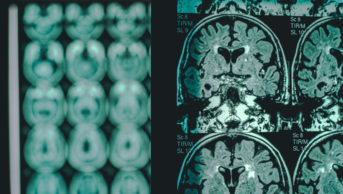
PSIP, VEM / Science Photo Library
Low-serum vitamin D levels are associated with increased disability and disease activity in multiple sclerosis (MS), an autoimmune disease. However, the optimum dose of vitamin D supplementation in MS is unclear.
In a recent study, US researchers randomly assigned 40 patients with relapsing-remitting MS to receive 10,400 IU or 800 IU cholecalciferol (vitamin D3) daily for six months.
They found that, at three and six months, those in the high-dose group achieved vitamin D levels within the target range of 40-60 ng/ml, but those in the low-dose group did not. High-dose cholecalciferol supplementation also resulted in clinically relevant immunologic effects not observed in the low-dose group.
Writing in Neurology (online, 30 December 2015)[1]
, the researchers say that ongoing randomised trials should help establish the efficacy of vitamin D3 as a novel immunomodulatory therapy for MS.
References
[1] Sotirchos ES, Bhargava P, Eckstein C, et al. Safety and immunologic effects of high- vs low-dose cholecalciferol in multiple sclerosis. Neurology 2016; doi: 10.1212/WNL.0000000000002316.


